Top 15 Data Transformation Tools for Marketers in 2025
Data transformation is an essential part of data management, and in the data-rich marketing environment of today, a step you can’t afford to miss. In this article, we review some of the most capable data transformation tools available to marketers.

Jan 28 2024●7 min read
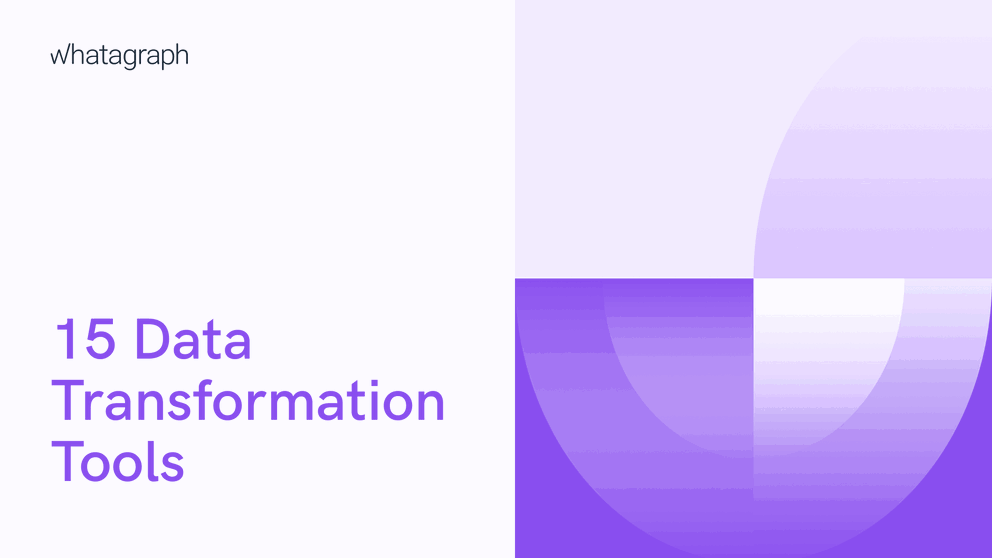
What is data transformation in marketing?
Data transformation is the process of converting, cleansing, and structuring marketing data into a usable format that you can analyze to gain actionable insights and support decision-making. Data transformation is often used when integrating data from diverse marketing sources or when marketing analytics requires grouping or blending certain data points before the analysis.
In our recent article on marketing data transformation, we talked in more depth about its benefits and capabilities. But which tools give you the most options and smoothest journey when transforming your marketing data?
How to choose a marketing data transformation tool?
When it comes to choosing the best data transformation software for your marketing agency or company, the answer becomes much easier if you know what you’re looking for. These four questions can help you filter out these 15 tools and base the decision on your needs.
- What are your marketing data sources?
- What kind of data transformations do you need to run?
- What is the destination for your transformed marketing data?
- What kind of professional support are you looking to get?
When you answer these questions, you can better understand your needs and choose the best marketing data transformation tool for your outfit.
15 best marketing data transformation tools
Now, let’s take a look at the most significant marketing data transformation tools available on the market. The pros and cons of each tool come from our experience testing different tools, as well as verified user reviews on websites like Capterra, TrustRadius, and G2.
1. Whatagraph
Whatagraph is an all-in-one marketing data platform to connect, organize, visualize, and share all your marketing data. With Whatagraph, you can replace multiple slow and complex tools with one platform. Unlike many competitors, Whatagraph is easy to use and allows anyone in a team to manage and organize unstructured, scattered cross-channel data. Using no-code transformations, you can easily blend, unify, and group data points and create custom metrics and dimensions.
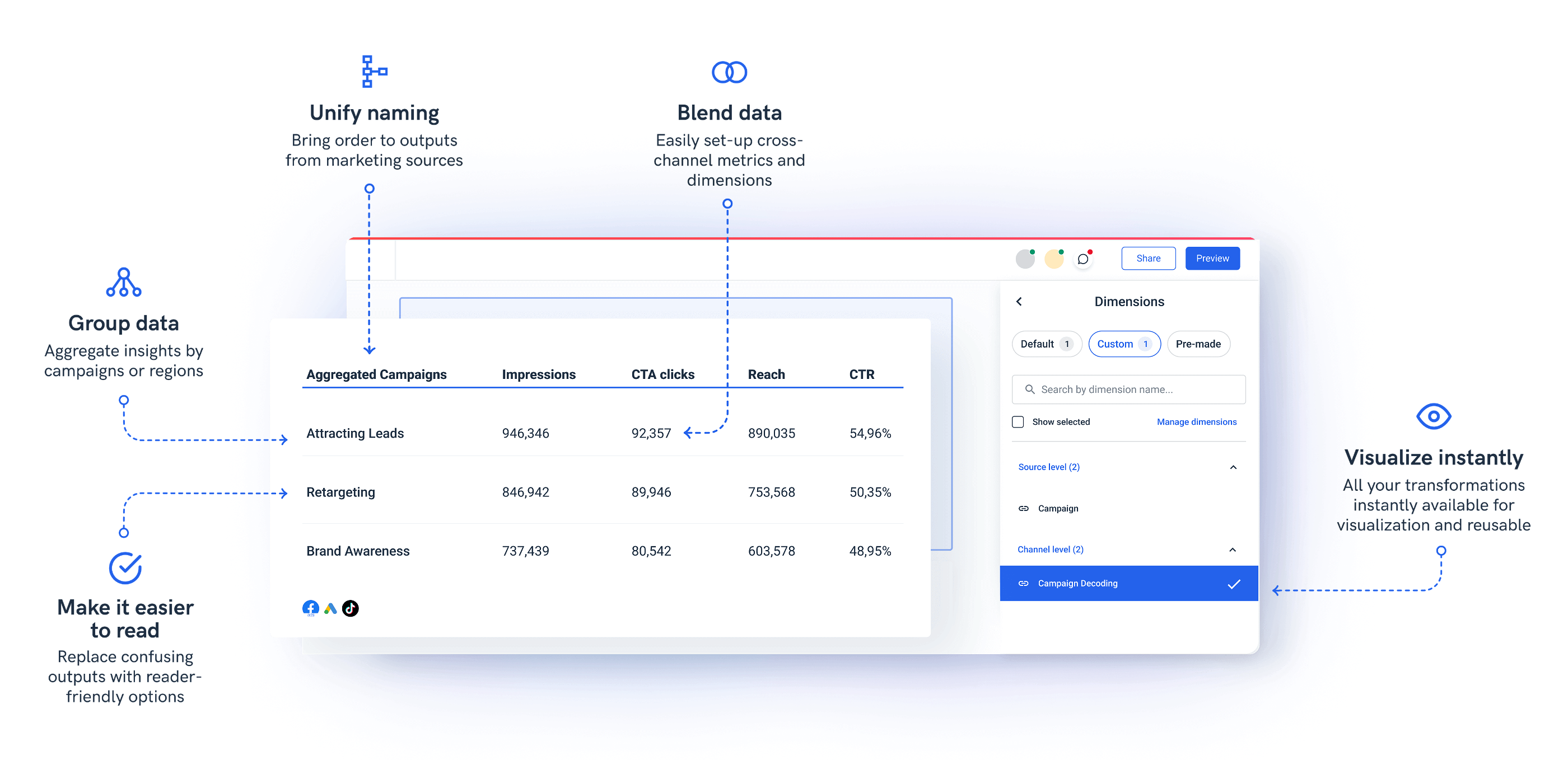
At the same time, Whatagraph allows you to visualize the organized and prepared cross-channel data. You can quickly turn it into analysis- or presentation-ready reports, dashboards, or standalone graphs, charts, funnels, or tables.
Finally, automate how you share or deliver that data to any destination: clients, stakeholders, teammates, or other tools and platforms.
Best for: Marketing agencies and businesses that need to manage marketing data on scale. This includes connecting marketing data from scattered sources, code-less data transformations, quick and engaging visualizations, and automated insight sharing.
Pros:
- One platform
- Intuitive to use
- Personal onboarding
- Fully managed integrations to popular marketing tools
- Connect any source via a custom API, Google Sheets, or Google BigQuery
- No-code data transformations
- AI insights
- Visualize transformed data in the same platform
- Automated report sharing via scheduled emails or live links
- Live chat customer support
Cons:
- No freemium plan
- Currently only BigQuery available as a destination
2. Matillion
Matillion is an ETL tool for Amazon Redshift, Azure, Google BigQuery, Snowflake, and Synapse. It’s a missing piece between your raw data sources and your business intelligence (BI) and analytics tools. Matillion eliminates the manual-intensive activity of extracting, transforming, and loading marketing data from your on-premise server to one of your destinations. You can use the tool to set up automated data transformation as and when required by your BI tools or to set up complex business rules.
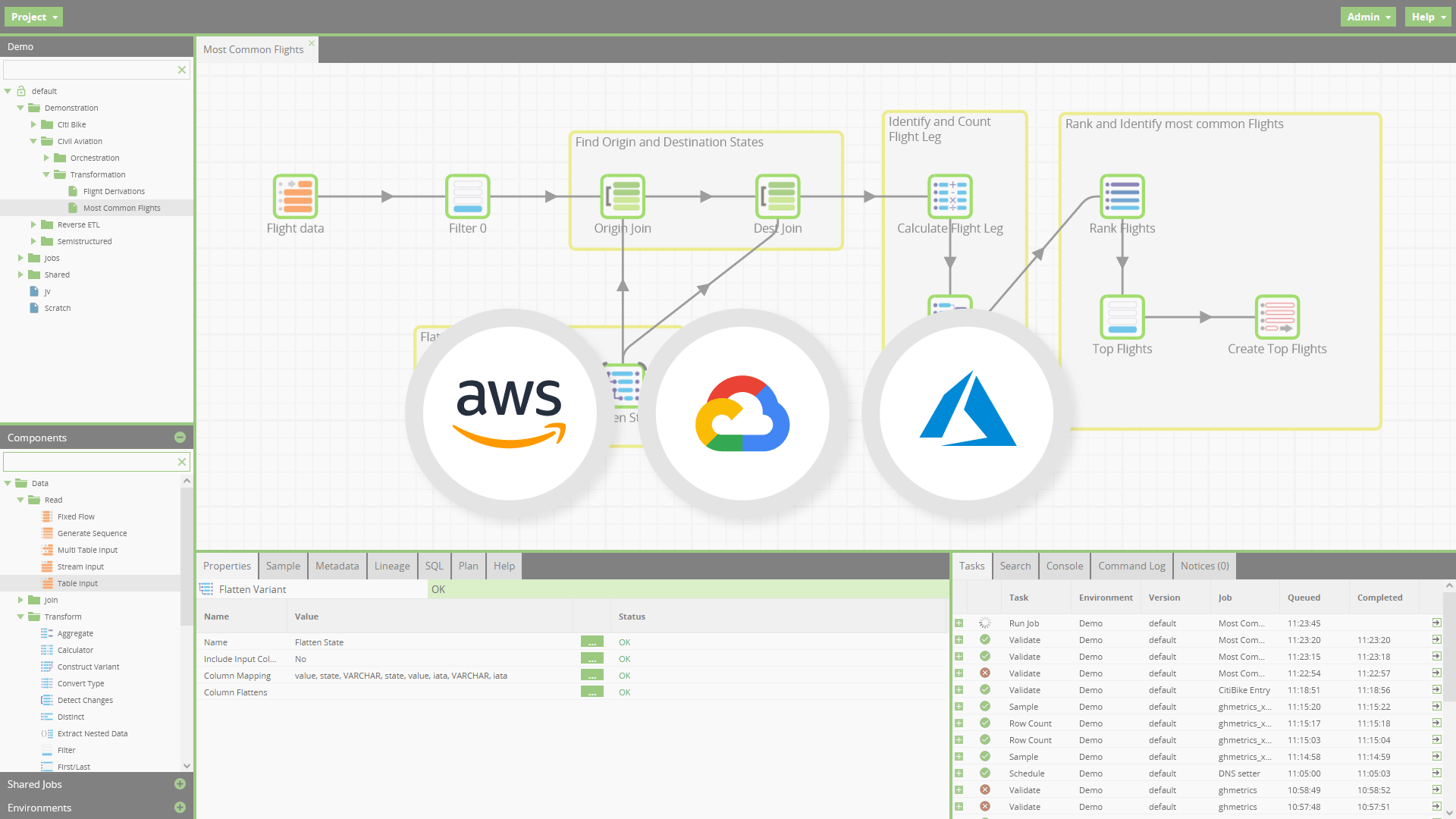
Best for: Medium-sized businesses and enterprises that import their marketing data into data warehouses and data lakes before manipulating and cleaning it.
Pros:
- Quick and easy to set up
- No-code ELT and data pipelines
- Move data easily from any source or cloud platform
- AI-generated documentation for pipeline management
Cons:
- Needs another tool to visualize data
- Lacks built-in monitoring and error reporting
- No event-based task scheduling
3. Hevo Data
Hevo Data is a bi-directional no-code data pipeline that helps users replicate marketing data from any source with zero maintenance. You can easily load the data to your desired data warehouse while enriching it and transforming it into an analysis-ready form. Hevo offers a range of pre-built transformations you can run using a Python or intuitive drag-and-drop interface.
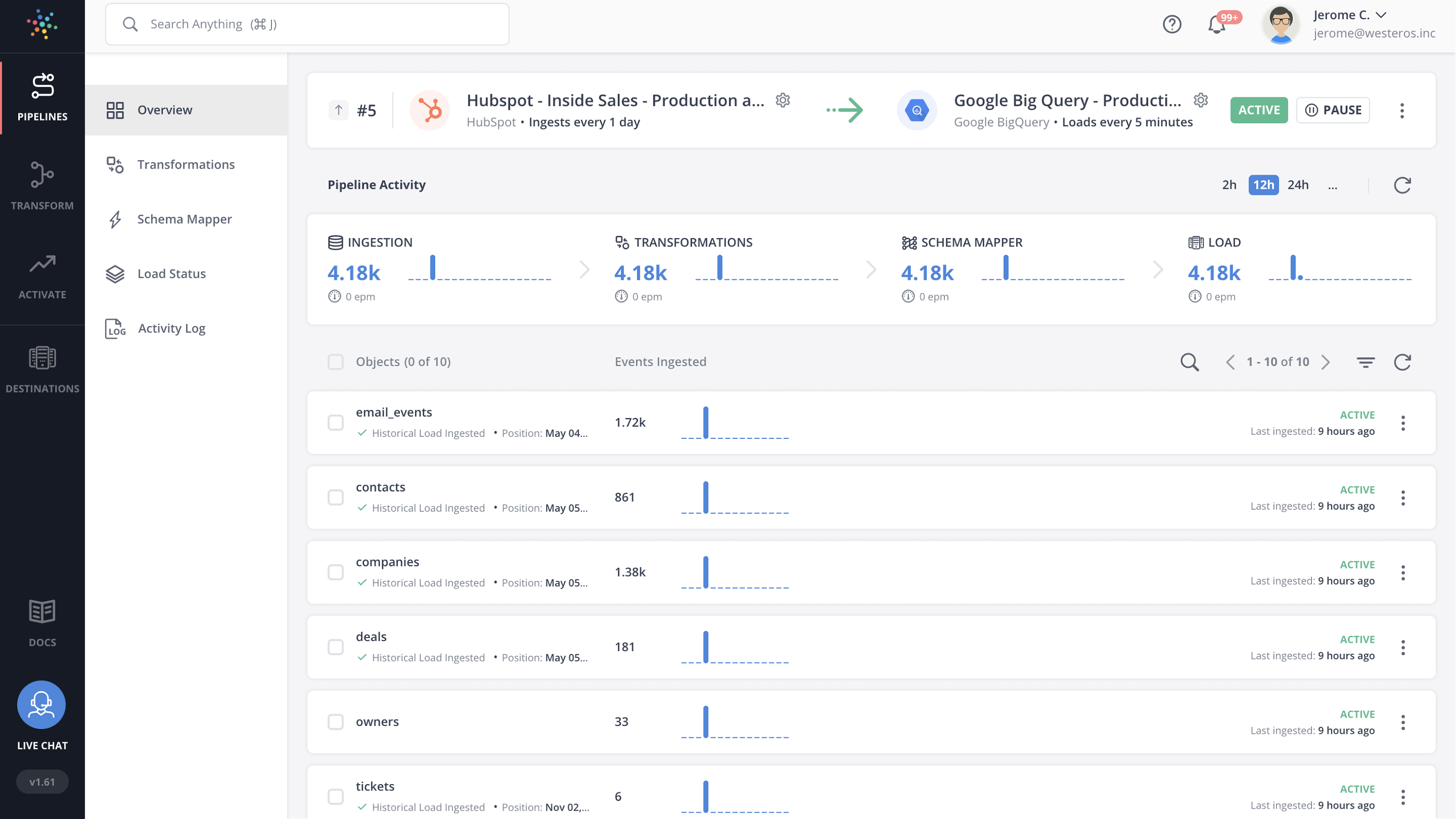
Best for: Data scientists and data engineers who need to replicate data from several different sources.
Pros:
- Near-real-time data replication
- Intuitive dashboards for pipeline monitoring
- Architecture scalability with zero data loss
- Pre-built connectors for 150 SaaS apps and databases
- 24x7 customer support
Cons:
- Not all schema are auto-mapped, some need manual mapping
- Pipelines sometimes take time to load
- Customer support is complex
4. Alteryx Designer Cloud
Alteryx (ex-Trifacta) is an easy-to-use visual data engineering and data wrangling cloud platform. This data transformation tool is built for more technical users who prepare, clean, and transform raw marketing data and visualize the insights on a regular basis. Alteryx uses AI service and support, so users should already have some working experience with similar solutions. If your marketing team lacks a dedicated technical data-guy, this data transformation software might not be the best fit.
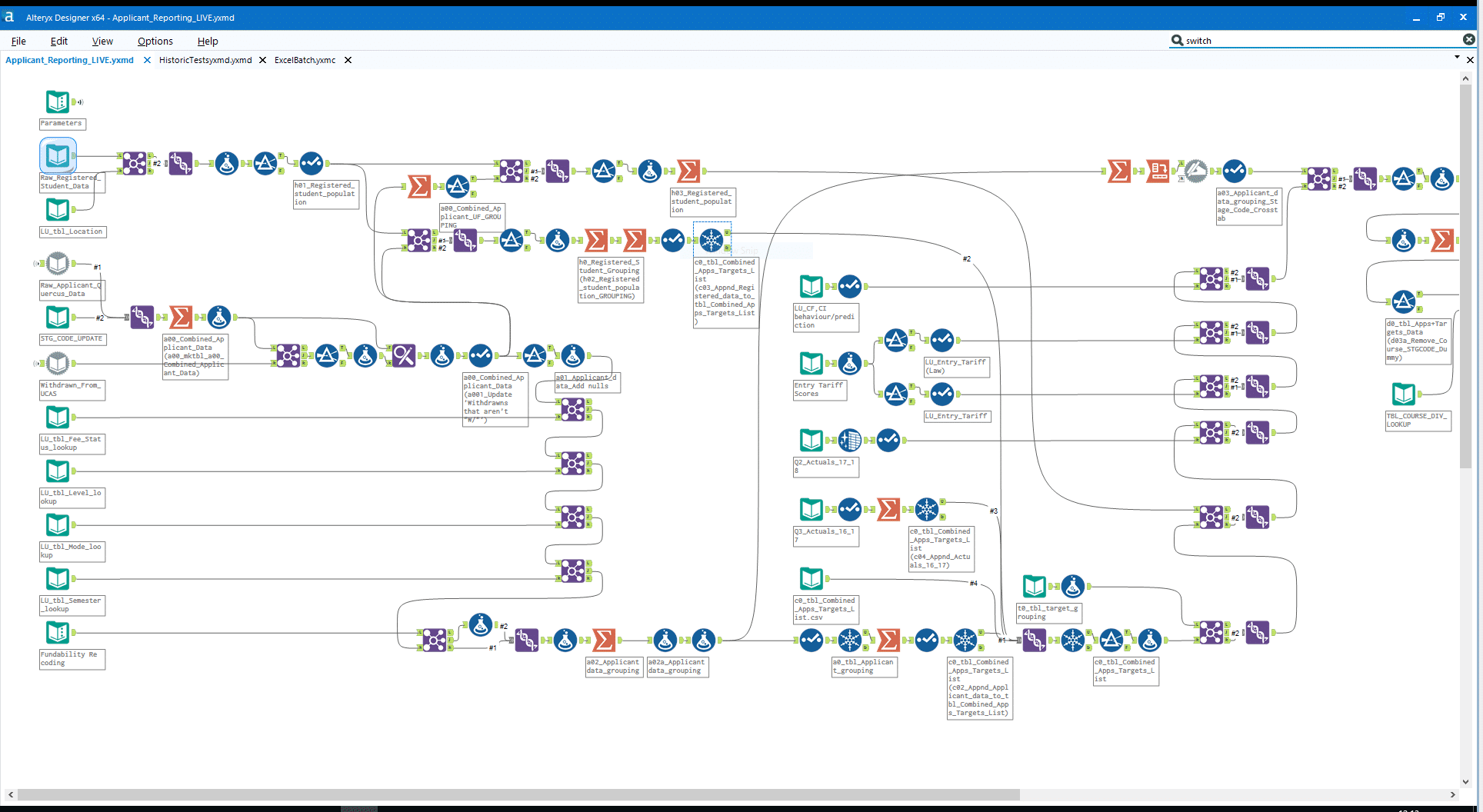
Best for: Data analysts, data scientists, and data engineers with experience with similar tools.
Pros:
- Intuitive UI
- Amazing GitHub stars and forks
- Great ELT capabilities
- Automated machine learning
- Generative AI insights
Cons:
- Only 100MB files supported in the free version
- The web interface can be buggy — use the desktop app
- Reports available as PowerPoint, textual emails, or messages
- No option to customize the visuals
5. Rivery
As a fully managed DataOps platform, Rivery is suitable for all organizational data tasks, allowing users to seamlessly manage, transform, and automate data models. If you are looking for a scalable solution for SQL and Python transformations, data ingestion, orchestration, and workflow automation, Rivery has it. Thanks to the native Python support, Rivery makes transforming marketing data easy from any system.
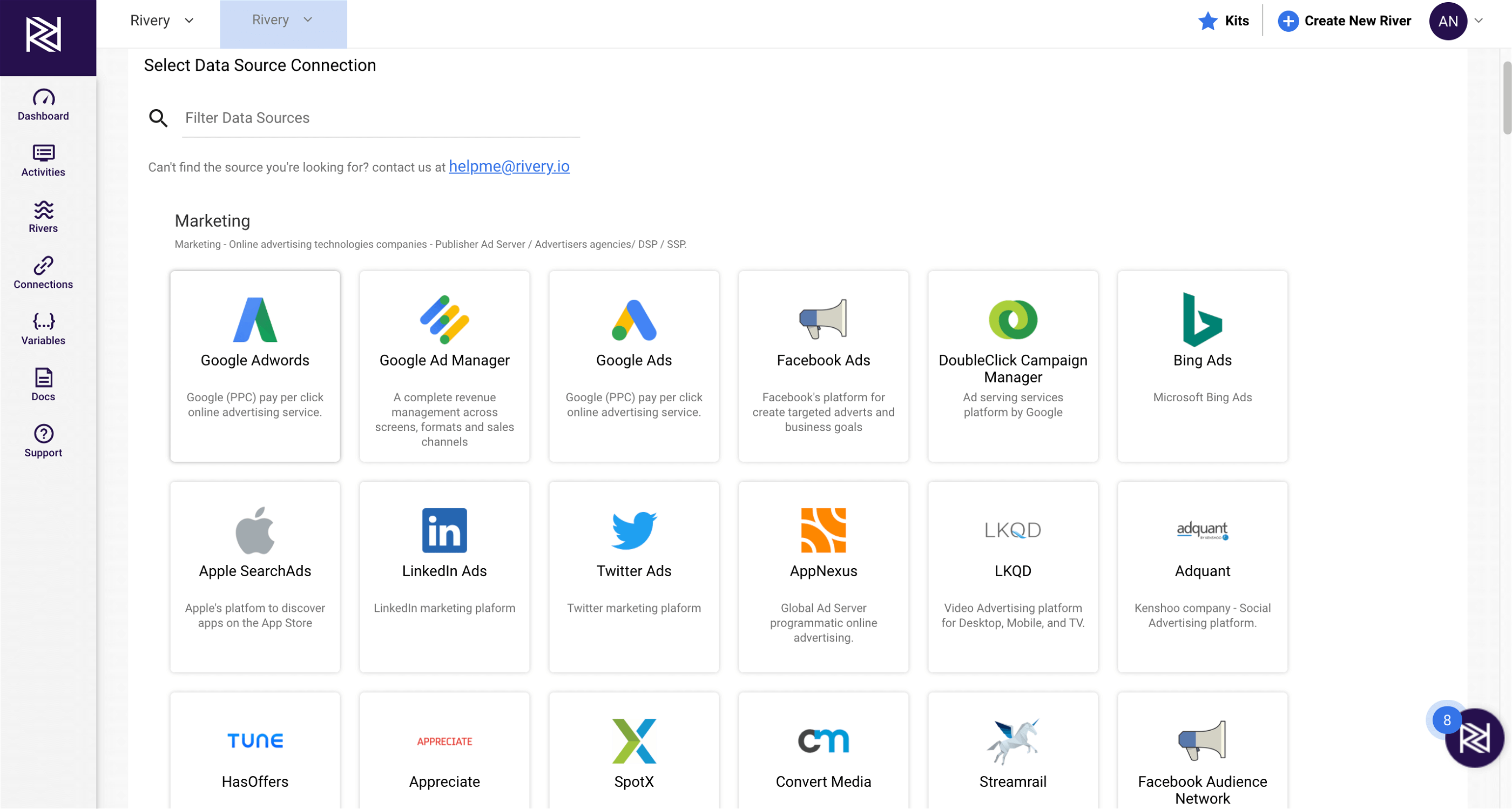
Best for: Data analyst and data scientists transforming marketing data from a variety of sources, including databases.
Pros:
- 200+ native connectors
- Freemium plan included
- User-friendly interface for building dependencies
- No setup fee
Cons:
- Understanding error prompts requires adequate data knowledge
- Training required to use all features properly
6. Keboola
Keboola is a self-service data operations platform used to automate much of your marketing data operations. To connect your data, you can use one of 400+ connectors or the low-code component framework that allows you to connect any source. Business users can choose no-code transformations to do the basic stuff, and tech-savvy teams can transform data using Python, SQL, or R.
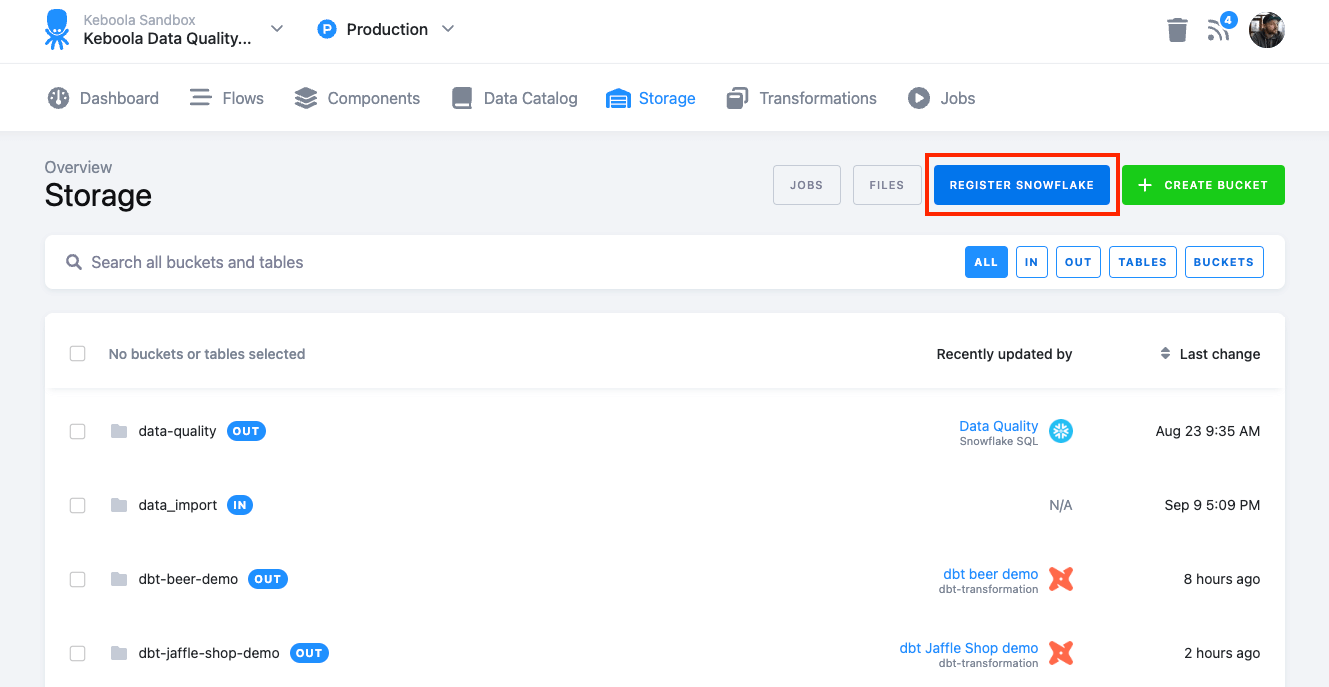
Best for: Data engineers, data analysts, and analytics engineers to collaborate on analytics and automation and execute marketing data operations from extraction, transformation, data management, and pipeline orchestration to reverse ETL.
Pros:
- 400+ connectors out of the box
- Customized data sourcing
- 1:1 pipeline development environment
- No-code and low-code data transformations
Cons:
- No mobile phone app
- Lacks compatibility with some OS
7. RudderStack
RudderStack is positioned as a data pipeline platform that makes data integration painless with real-time event delivery. You can integrate this data transformation tool into your existing data warehouse or infrastructure and use it to set up transformations in a sandbox environment. This way, you can review and debug every transformation before it goes live.
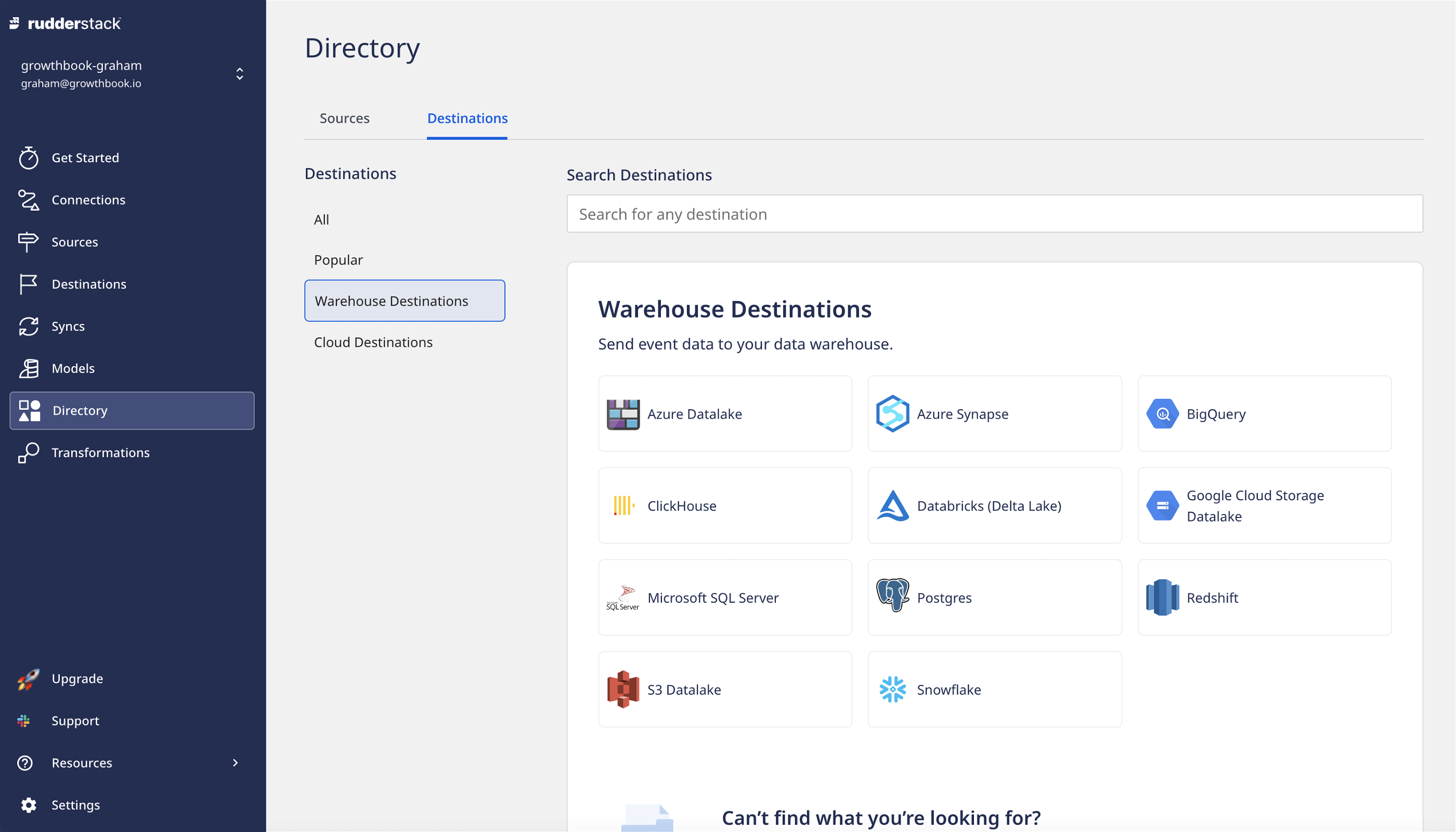
Best for: More experienced data engineers and analysts comfortable working with JSONs and manipulating APIs.
Pros:
- One source to rule many other destinations
- Custom data integrations
- Slack team channel
Cons:
- Users need some technical background
- Not all destination connectors are full-featured
8. Talend
Talend is a big data and cloud data integration tool leading in open-source integration applications. To support your marketing data transformation process, Talend partners with leading cloud service providers, including Amazon Web Services (AWS), Google Cloud Platform, and Snowflake. Marketers can use it to perform advanced data analytics and ETL operations with over 900 connectors.
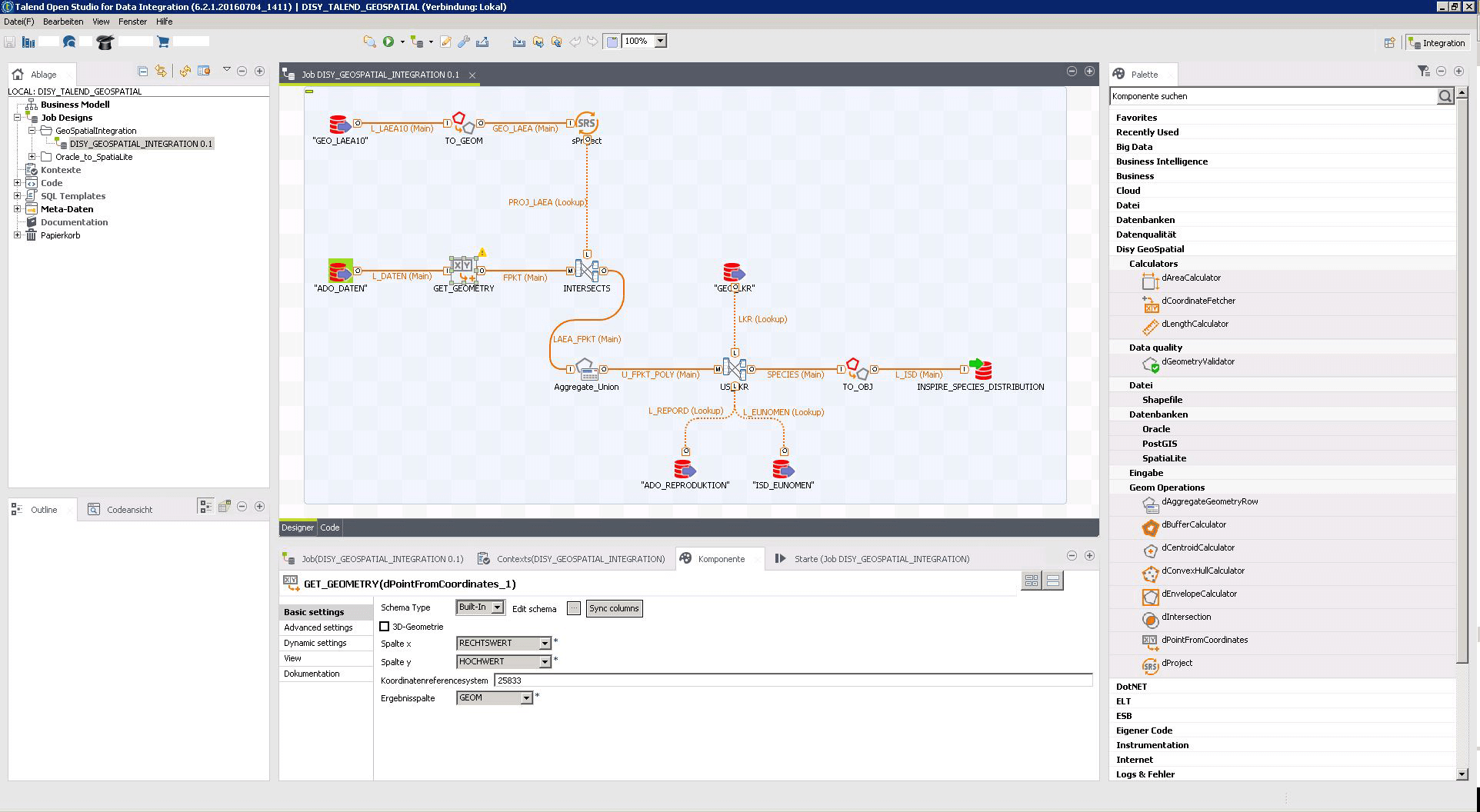
Best for: Data teams and engineers to move massive amounts of data in real time.
Pros:
- One platform for data extraction, transformation, and loading
- Scalable, open-source solution
- Specialized ETL process
- Low error rates
Cons:
- No free version
- Unresponsive technical support
- Confusing user interface (e.g., when setting up an artifact repository)
9. EasyMorph
EasyMorph is a data management platform that allows users to perform complex transformations in marketing data with no code or specialized programming. This is made possible by numerous preset actions and functions that marketers can use straight away. Although developed with the analytics teams in mind, EasyMorph can be a good choice for less technical-savvy users thanks to the code-free integration process.
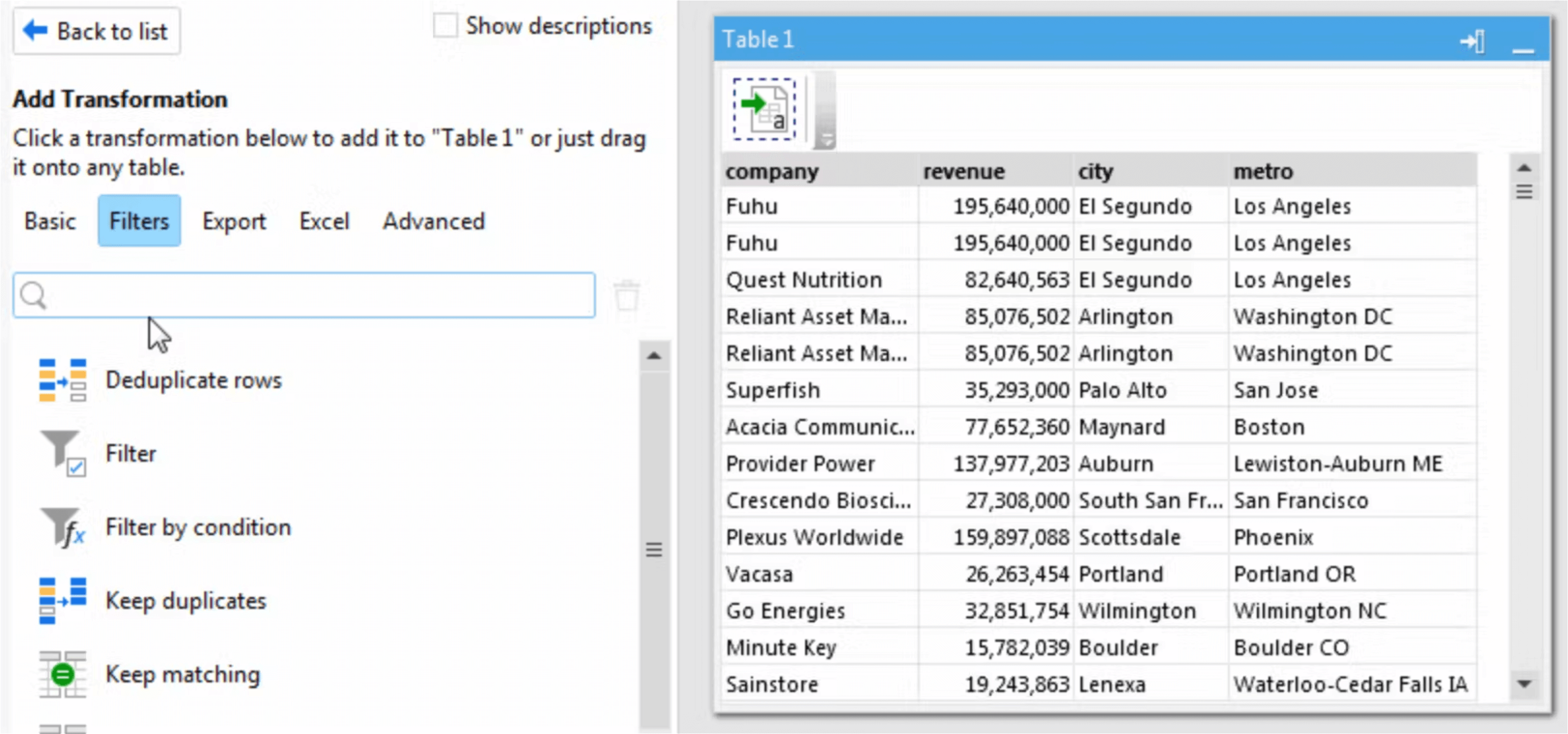
Best for: Technical and non-technical users who need out-box transformation capabilities.
Pros:
- Simple to install
- No administration required
- Free version available
Cons:
- For MS Windows only, no MacOS or Linux
- Documentation is not always up to date with new features
- Not many destinations available
10. Qlik
Qlik is one of the major data transformation software firms offering different data integration, data quality, and analytics solutions that support your AI marketing data strategy. Providing a single platform for active intelligence, Qlik allows marketers to streamline data warehouse tasks, as well as develop, test, deploy, and update anything data-related.
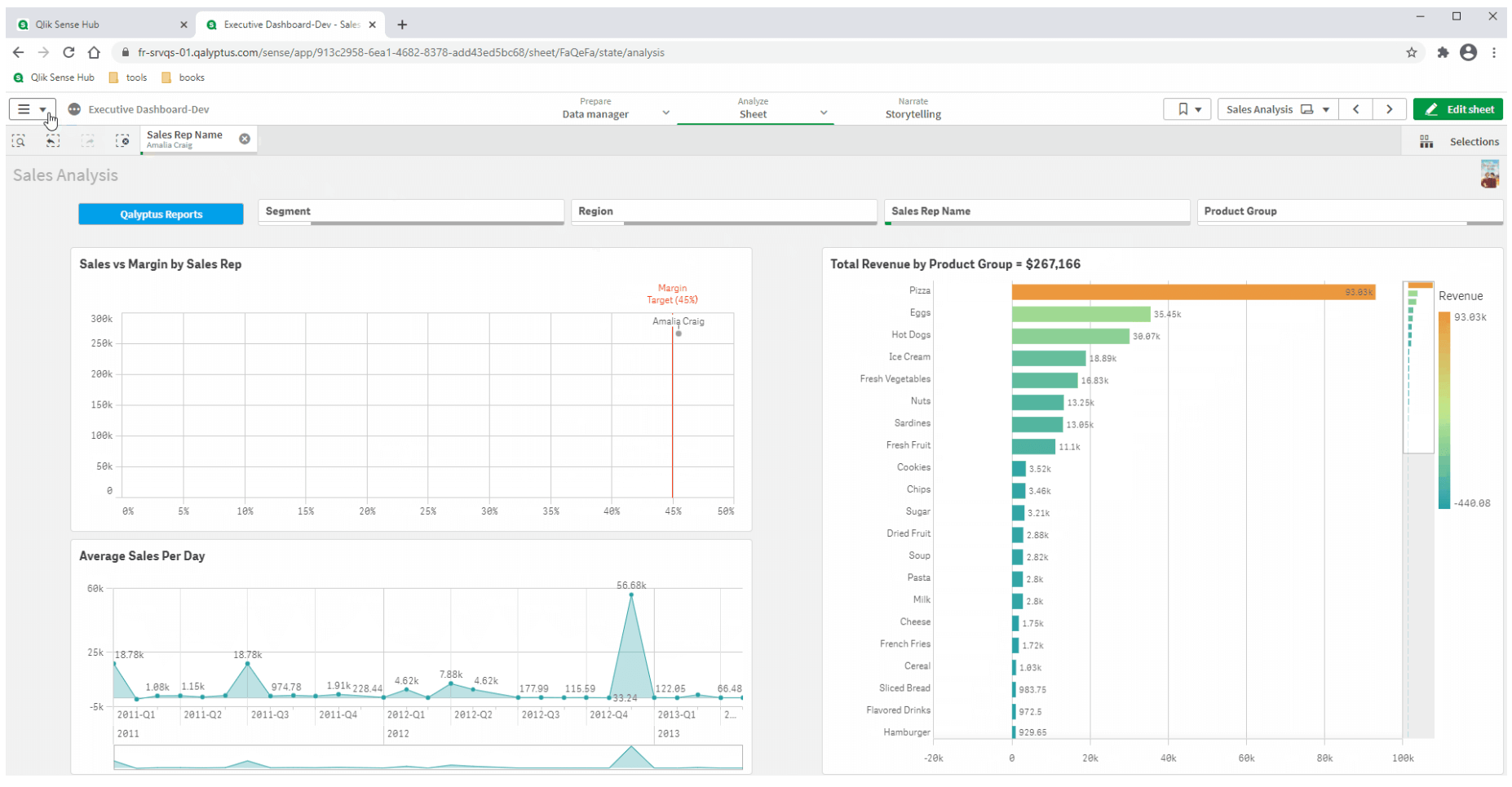
Best for: Data engineers and data analysts looking to accelerate marketing data analytics tasks by data warehousing, data management, and ETL processes.
Pros:
- No-code ETL automation
- User-centered interface
- Effortless scalable replications
Cons:
- Occasional data latency issues
- Works best with other Qlik products
- Needs more documentation
11. Informatica
Informatica Data Management Cloud is a perfect solution for extracting, transforming, and loading your marketing data into a data warehouse. It offers pre-built connectors and actions between applications and programs, as well as use-case-specific service. You can transform any type of data format and size into usable data. Teams can map any transformation they need and then deploy the command to execute it whenever needed without writing code.
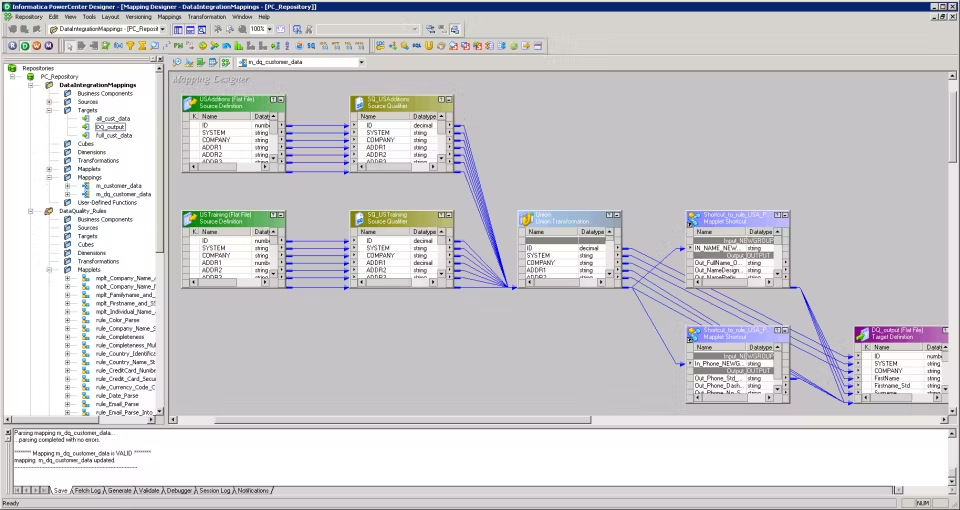
The platform is available as a PowerCenter, which is an ETL solution for large enterprises, and Cloud Data Integration, which is positioned as an IPaaS (Integration Platform as a Service).
Best for: Enterprises looking to unlock and democratize their data across the organization, turning it into a trusted asset.
Pros:
- User-interface easy to understand for non-developers
- Pre-built transformations library
- Seamless scaling
Cons:
- No documentation for new features
- Complex to implement a new API
12. IBM InfoSphere DataStage
IBM InfoSphere DataStage is a cloud-ready data integration platform that can clean, modify, and transform different types of data marketers use to optimize their campaigns. Built on containers and microservices, DataStage provides easy real-time analytics and features like built-in search, automatic metadata propagation, and simultaneous highlighting of compilation errors.
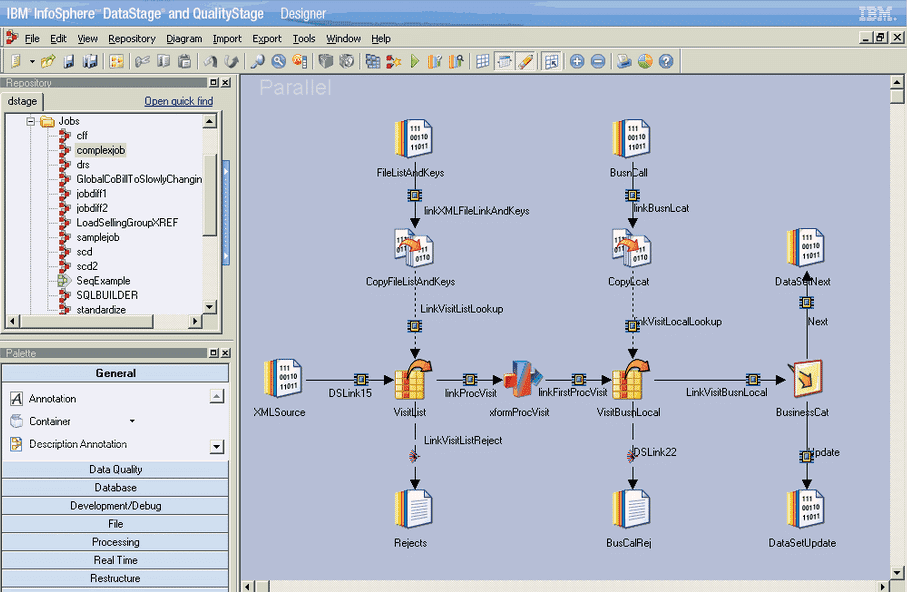
Best for: Marketers dealing with various data sources, formats, and structures that need scalable solutions for aggregation and unified view.
Pros:
- Reporting function
- Excellent mapping tools
- Data collaboration
Cons:
- Tools not easy to manipulate through Cloud services
- Hierarchical stages to build XMLs and JSONs need work
13. Datameer
Datameer is a SaaS data transformation solution designed explicitly for Snowflake Cloud. It comes with end-to-end data lifecycle management able to discover data, transform, deploy and document marketing data operations. The tool is ideal for both non-tech-savvy and SQL-savvy teams, as it allows you to manipulate datasets using SQL, No-code, or both.
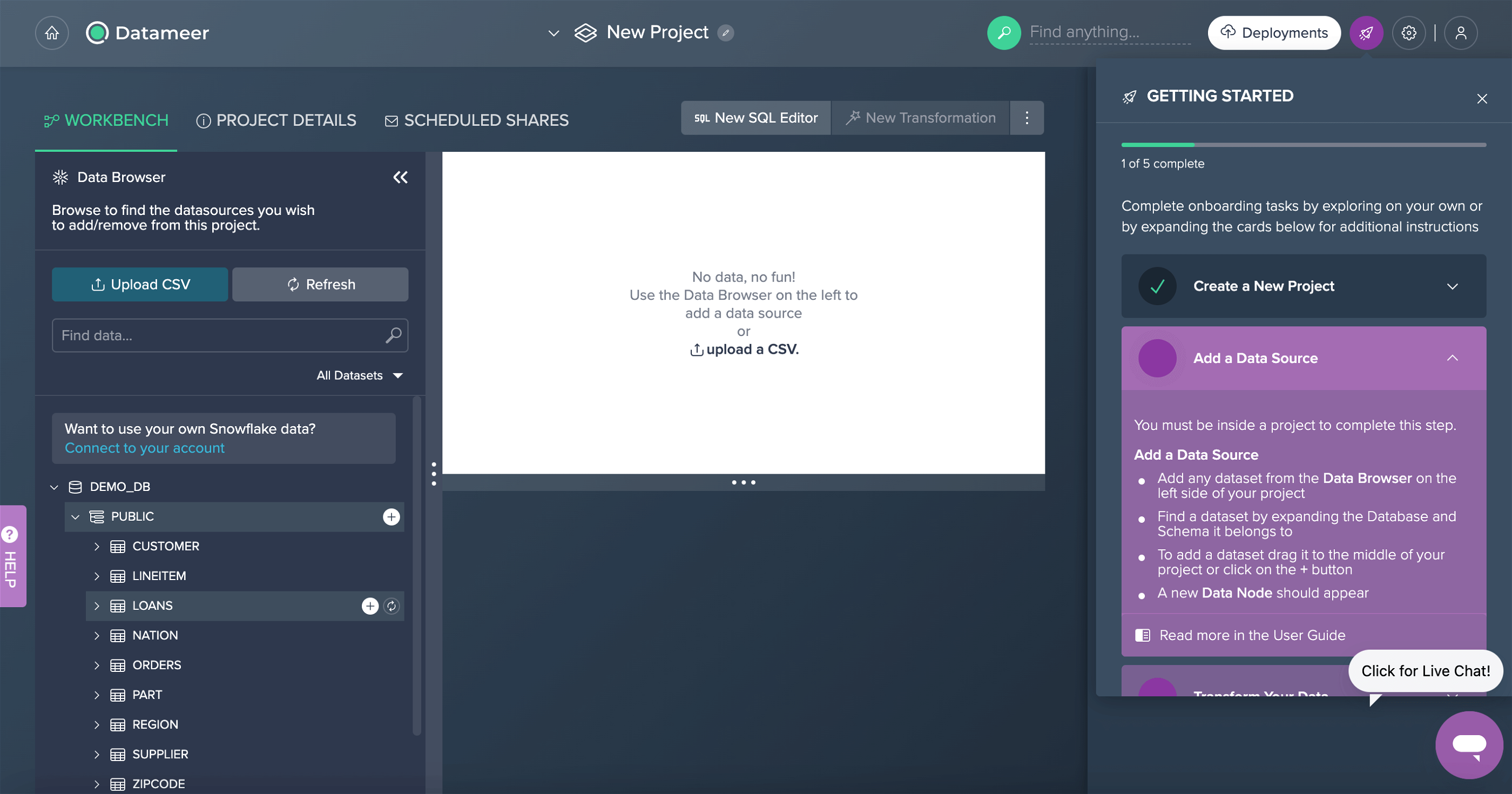
Best for: Building use-case-driven pipelines to ETL on-premise marketing data to a cloud data warehouse without need to hire a data ops expert.
Pros:
- Built-in data catalog for quick access to metadata and documentation
- Advanced version control and pipeline monitoring
- Complete data lineage and audit trails
- Efficient data governance and minimal duplication thanks to Snowflake integration
Cons:
- Could benefit from more condensed designs
- Multiple tabs tend to dilute focus
- Tutorial videos too long in most cases
14. Dbt Labs
Dbt is a command-line data transformation software aimed at SQL and Python-savvy data analysts and engineers to transform data in their warehouses more effectively. You can use SQL code to build and manage data models, test data quality, and document work. Thanks to the auto-generated dependency graphs, you can track data flow through the pipeline and resolve each step in the correct order.
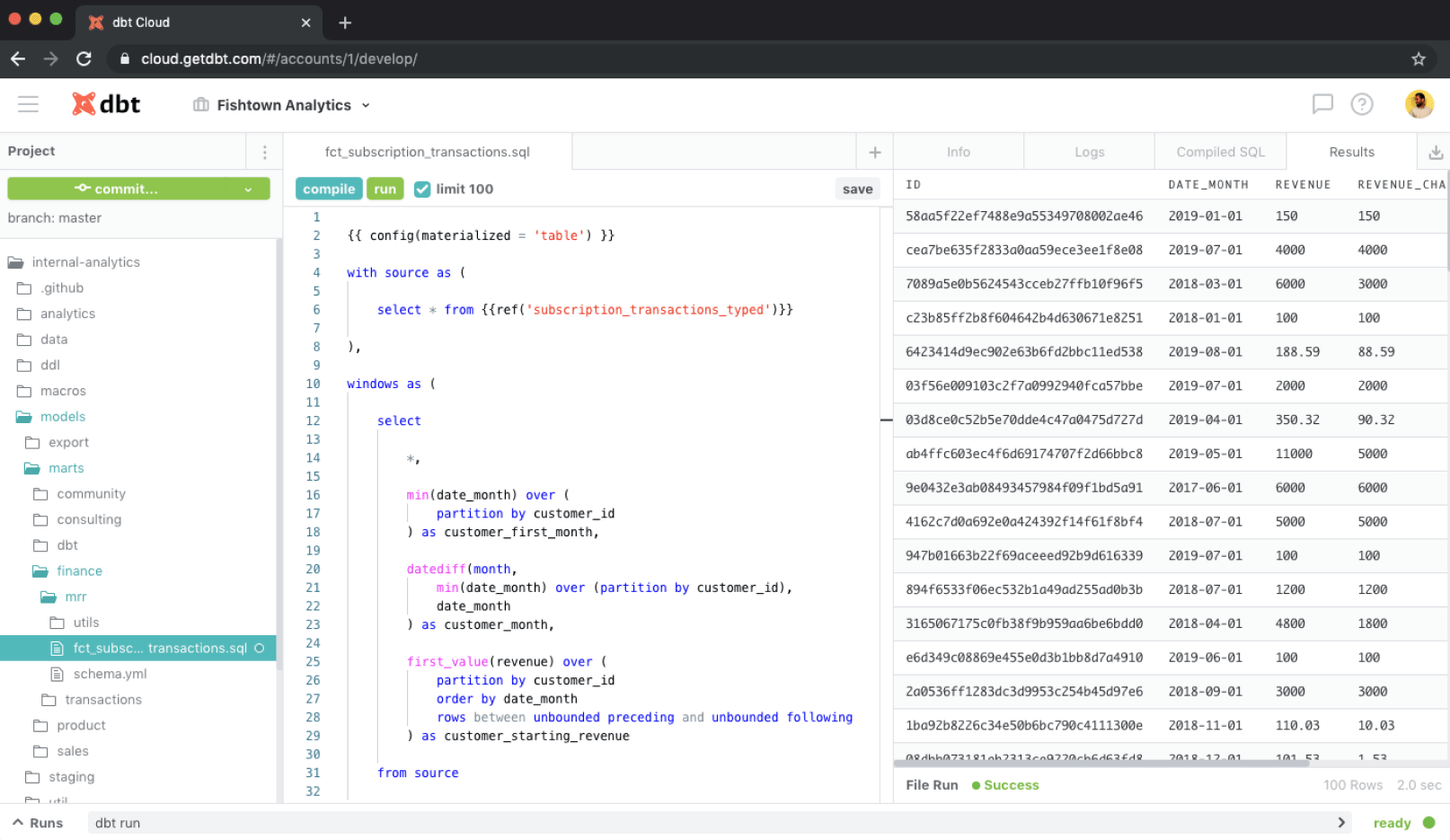
Best for: More technical analysts and BI teams already using SQL programming to transform their marketing data.
Pros:
- Easy-to-deploy tests
- Data lineage and documentation
- Libraries with helpful code packages
Cons:
- Too complex for non-tech-savvy digital marketers
- Documentation inheritance issues
15. Nexla
Nexla is a data transformation tool that simplifies marketing data preparation thanks to its no-code interface. It helps non-tech users run data transformation with its extensive library of transformation operations. Using automated versioning and logging, Nexla helps you understand how data sets have changed and who made those changes. Features like schema validation, data type validation, and data profiling simplify data compliance and improve the reliability of transformed data.
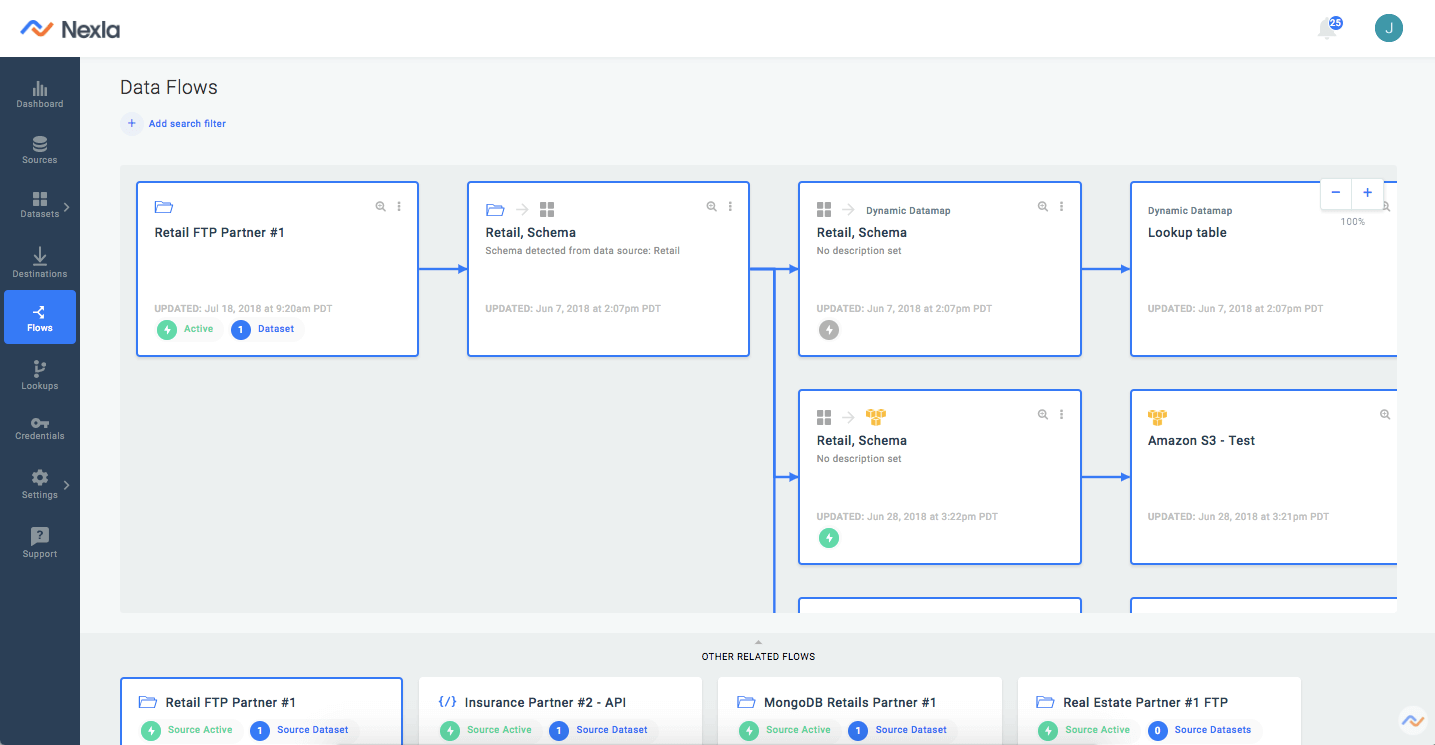
Best for: Non-technical marketing teams looking for a robust solution for data operations, data flow management, and data analytics.
Pros:
- Powerful no-code platform
- Extensive failed pipeline recovery mechanism
- Responsive support team
- Easy to transform large data sets
Cons:
- UI/UX could be better
- Site loading time varies between devices
Benefits of using one marketing data platform vs. data stack
You might be tempted to spring for a modern data stack with various specialized tools. However, these often come with a complex web of dependencies and a demand for technical expertise. For marketing agencies and smaller businesses, this can become a barrier that prevents them from scaling.
The integration challenges that follow a modern data stack can slow the workflow, delaying sourcing actionable insights.
With Whatagraph, you don’t have such problems. The whole data journey takes place within one platform that has been optimized for maximum speed and user experience. Whatagraph can replace an entire marketing data stack with one reliable platform.
Anyone in a marketing team can execute advanced data management
With Whatagraph, there’s nothing to manage, integrate, or maintain. Your data flows in automatically and directly from your marketing sources into a single hub via fully-managed integrations, Custom API, Google Sheets, or BigQuery.
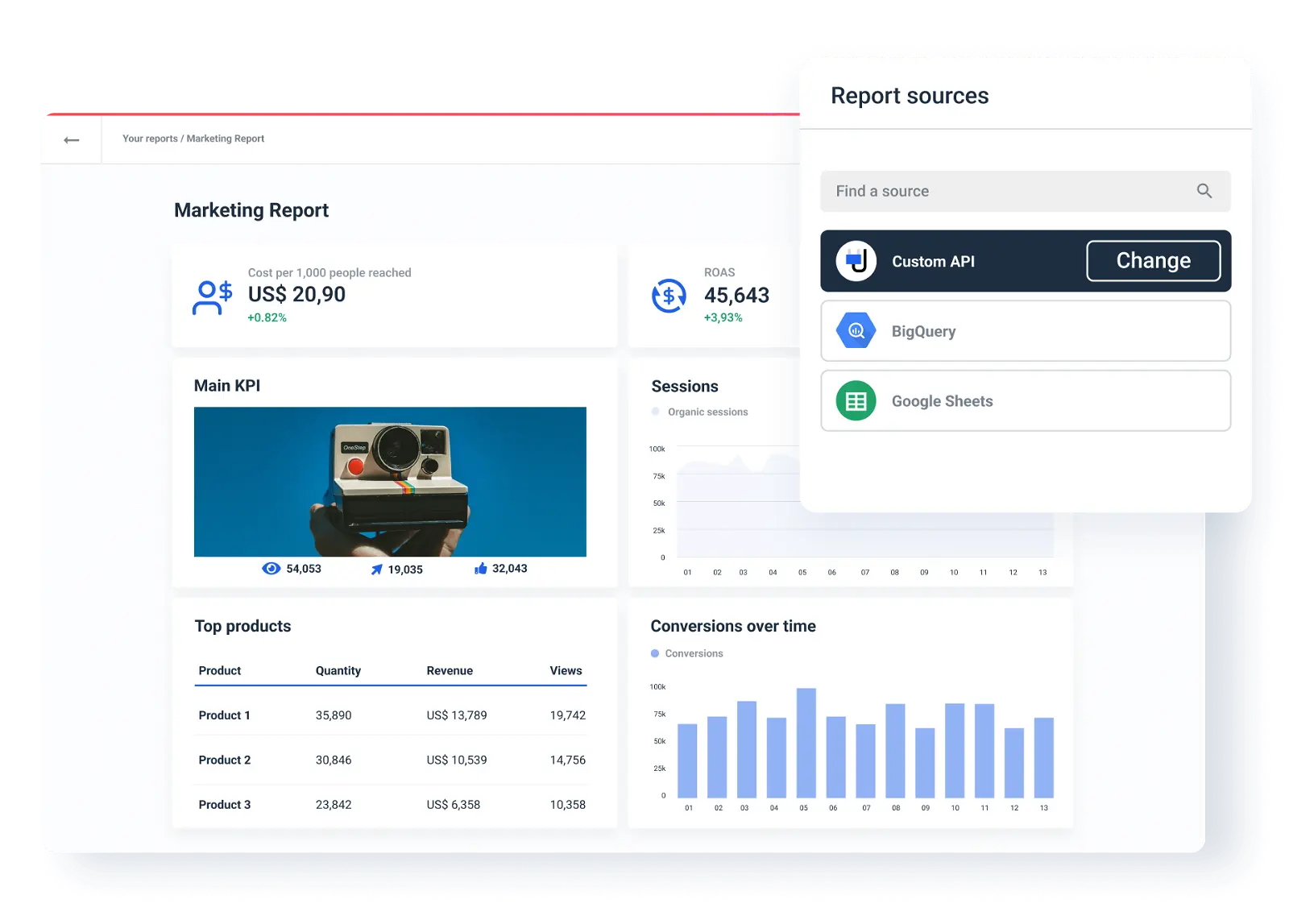
Unlike other complex tools, you can easily blend, unify, and group data with transformations instantly available for visualization.
All-in-one intuitive data platform
Once you connect your marketing data sources to Whatagraph, every data point is in one easy-to-navigate solution. You are free to seamlessly transform unstructured data. Get to analysis- or presentation-ready reports and dashboards faster.
Whatagraph is a marketing data platform that grows with you. There’s no restriction on adding any number of new clients or campaigns. No limits on the length and depth of displayed data and no limits to fast and reliable experience.
Most importantly, no matter how many clients or data sources you have, you can rest assured your marketing data is accurate, reliable, and automatically updated regularly.
Save hours in the process
Whatagraph reduces the repetitive manual work by introducing report and dashboard templates out of the box. Just connect your sources, and your presentation is ready. You can save any report, widget, or calculation you create as a template for future use. This includes any blend or transformation, as well.
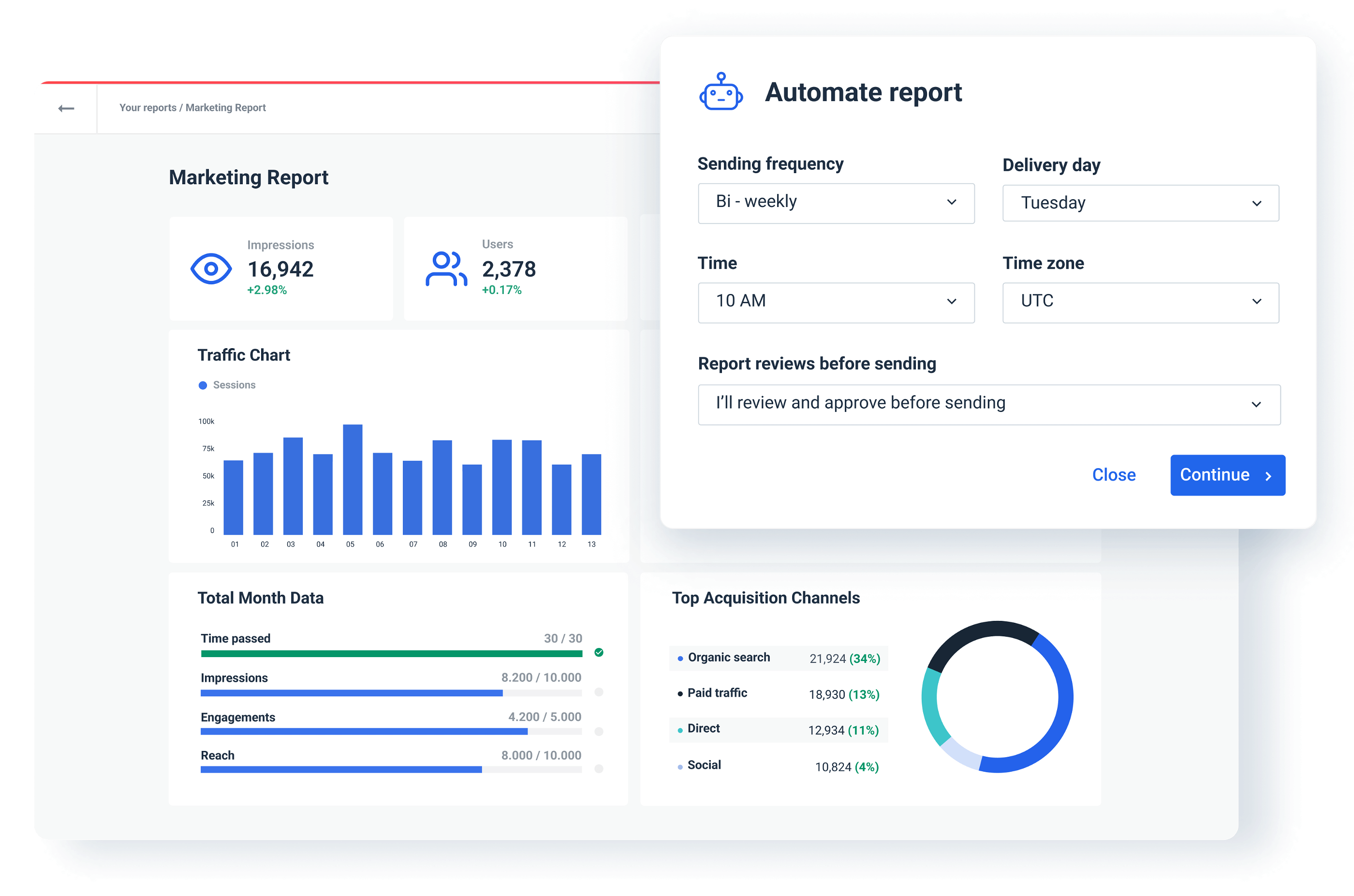
Link multiple reports to a template and edit them in bulk instead of changing them one by one. Save time on report distribution by scheduling emails with links or attachments or sharing live links for on-demand access.
Visualize instantly
Create an engaging visual story so stakeholders can understand in the same platform where you connect and organize your marketing data. Create a visual report from scratch using the intuitive drag-and-drop builder, a library of pre-made widgets, including the goal widget, media, funnel, multi-source tables, different charts, etc. Build your own widgets, applying custom formulas and filters.
No hidden costs
Using several specialized tools can seem like a cost-effective solution. However, it can easily spiral into a budgetary nightmare. The fragmented nature of a modern data stack often requires additional expenses in training, integration, and ongoing maintenance. Such hidden costs can encumber your budget and work against the very agility that the stack promises to provide.
Not to mention that the cost of licensing several specialized tools can easily escalate, straining the resources of smaller agencies looking for sustainable, data-driven excellence.
When it comes to Whatagraph pricing, everything is transparent. You choose a plan and pay based on the number of source credits - for connecting new sources, executing blends, or setting up a data transfer to BigQuery.
Wrapping up
When it comes to organizing unstructured marketing data, there are many highly capable data transformation tools to choose from. However, capability doesn’t always go hand in hand with speed, convenience, and user experience.
If you have a data engineer or data scientist onboard, there’s no question they’ll enjoy using tools like RudderStack, Alteryx, or Dbt command prompts to build complex transformations in code.
But what about marketing agencies and businesses that don’t necessarily have a tech-savvy team?
Whatagraph’s one-platform concept allows you to transform marketing data without any code or breaking a sweat in the same environment where you connect the sources and create stunning visualizations.
Book a demo today and see Whatagraph in action.

WRITTEN BY
Nikola GemesNikola is a content marketer at Whatagraph with extensive writing experience in SaaS and tech niches. With a background in content management apps and composable architectures, it's his job to educate readers about the latest developments in the world of marketing data, data warehousing, headless architectures, and federated content platforms.